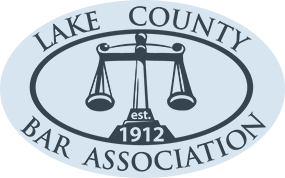

Mediation Attorneys Serving Elmhurst, Park Ridge, and Chicago
Divorce Mediation Lawyers in Chicago, DuPage County, and Lake County
Mediation is a widely used alternative dispute resolution (ADR) technique in family law matters. It provides a resolution-focused approach in a more comfortable and often less formal environment, allowing parties to work toward mutually acceptable agreements without the stress and expense of litigation. When done correctly, mediation results in tailored agreements with lasting effects.
Divorcing couples can use mediation to resolve issues such as child custody, spousal support, and asset division, as well as negotiate prenuptial or postnuptial agreements or other family law matters that might otherwise lead to litigation. Mediation may be voluntary or court-ordered, and having a knowledgeable mediator is essential to ensuring a fair and legally sound outcome.
Seeing the increasing trend toward mediation in family law, Attorney Amanda M. Oliver became a certified mediator, building upon her extensive experience inside and outside the courtroom. Her thoughtful and oftentimes “no-nonsense” approach has proven effective, even in the most complex cases. In addition, Attorney Maxine Weiss Kunz is a certified mediator through the Center for Conflict Resolution and the Cook County Courts. Their combined expertise makes Weiss-Kunz & Oliver, LLC a trusted choice for individuals seeking mediation services that prioritize fair, efficient, and amicable resolutions.

Advantages to Divorce Mediation
Divorce ranks as one of the most traumatic experiences of a person’s life, therefore one of the primary advantages to mediation is that it can offer a less confrontational setting for spouses to voice their concerns without the fear of having the discussion turn contentious. Other advantages to divorce mediation include:
- The client may save money over a traditional divorce because both parties are using a single neutral and likely sharing that cost (the attorneys at Weiss-Kunz & Oliver, LLC offer lower hourly rates for mediation);
- Clients have more control over the discussions and the outcome, choosing topics they need assistance with, and having the final say over the settlement agreement;
- Clients engaging in divorce mediation are allowed to speak and be heard, as opposed to a family court judge who is likely overworked and understaffed and lacks the time to get to know you and your spouse;
- Communications, documents and work notes accumulated during the mediation sessions are privileged and confidential and are not to be used in litigation if mediation fails;
- Divorce mediation allows greater scheduling flexibility;
- Children are protected from conflict; and
- Mediated agreements tend to show greater post-judgment stability.
Real Stories from Real People
-
"I needed an attorney who would fight for me and also keep me focused, and Maxine had my back."Maxine was very professional and worked efficiently to complete our case. Highly recommend!- Gloria B.
-
"As a client of WKO, I highly recommend Amanda Oliver."She has extensive experience to address family law issues efficiently and effectively. She is direct, informative, knowledgeable, resourceful and well-respected in the legal community. I love how she anticipates and mitigates potential issues, strategizes next steps, and keeps me informed along the way. If you have to go thru the divorce process, you want Amanda in your corner. HIGHLY recommend!- Angela L.
-
"Divorce isn’t always easy but Maxine and her team at WKO make it so."Maxine and her team have exceeded my expectations. Focused on the family and doing the right thing for everyone involved. Most importantly, my children. I’m deeply grateful for her efforts.- Stephen G.
-
"I am so glad I chose Amanda & her team."I highly recommend Amanda Oliver & her team at Weiss-Kunz & Oliver. Everyone I dealt with was professional, empathetic & compassionate. They make their clients their priority. Their fee structure was fair & very transparent.- Amy S.
-
"Maxine is very competent in her work, friendly, professional, responsive and down to earth."Maxine Weiss Kunz was great to work with. She clarified complex legal jargon into laymen terms and helped soothe the anxiety I often feel when the law is involved and it is a serious matter. Grateful to her and her team. Thank you Maxine!- Nina K.
-
"Thank you, Amanda for being a powerful advocate when I needed one most."You handled my case with empathy, patience, and delivered with passion. You exceeded my expectations, and your work was brilliant! Weiss-Klunz & Oliver are not only knowledgeable of the law, the entire team is responsive, supportive, and really care about their clients. Thank you for taking my situation and turning it into a positive outcome.- Rosa
-
"I needed an attorney who would fight for me and also keep me focused, and Maxine had my back."
Maxine was very professional and worked efficiently to complete our case. Highly recommend!
- Gloria B.


How We Can Help
If you and your spouse are at least able to discuss your divorce in a reasonable, fairly amicable matter, then mediation may be the best choice for you. Couples who can go through a mediated divorce are generally able to move on after the divorce much more quickly, and to get along with their ex after the divorce much better. Our attorneys can help clients decide whether mediation is right for them. We are skilled in helping clients with a mediated divorce or a traditional divorce. We will screen each of you individually if approached about mediation to ensure that mediation is the appropriate option for your case, including a screen to rule out domestic violence as mandated by the cannons of ethics. In the event we determine that mediation is not in the best interests of your case, then other recommendations will be made to promote a swift resolution of your case.













